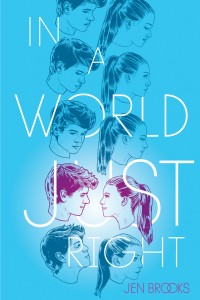Inklings
Mythopoeia
Three manuscripts complete and I’m still convinced that my genre of choice is “mythopoeia.” The term was coined by J.R.R. Tolkien, and translated from the Greek it means “myth making.” Here is how mythopoeia is defined by the Mythopoeic Society, which is devoted to the study of mythopoeia and the Inklings:
“We define this as literature that creates a new and transformative mythology, or incorporates and transforms existing mythological material. Transformation is the key mere static reference to mythological elements, invented or pre-existing, is not enough. The mythological elements must be of sufficient importance in the work to influence the spiritual, moral, and/or creative lives of the characters, and must reflect and support the authors underlying themes. This type of work, at its best, should also inspire the reader to examine the importance of mythology in his or her own spiritual, moral, and creative development. Our members are a diverse lot, and their individual definitions of mythopoeic literature and its authors are equallydiverse.”
Popular titles that fall into this category include The Lord of the Rings and The Chronicles of Narnia, both written by Inklings. Some works honored by the Mythopoeic society include J.K Rowling’s Harry Potter series, Megan Whalen Turner’s The Queens Thief series, Neil Gaiman’s American Gods, and a work I’ve mentioned elsewhere on this blog as an inspiration, Kristin Cashore’s Graceling. Other works in TV/cinema include Star Wars, Battlestar Galactica, and Stargate. An example of mythopoeia that predates the Inklings is Le Morte d’Arthur.
Although I’ve always been drawn to science fiction and fantasy for their “sense of wonder,” I find as I grow older that it is mythopoeic science fiction and fantasy that attract me most. Such stories speak to me on a very intimate level because, as is stated in the definition above, they are about the transformation of characters’ “spiritual, moral, and/or creative lives.” Although it’s fun to make up mythologies simply for the creative exercise, applying that mythology to a reason for living, for loving, for believing is what makes my writing meaningful to me.
Some online references, if you would like to explore further:
The Mythopoeic Society website: http://www.mythsoc.org/
On mythopoeia in several media: http://tvtropes.org/pmwiki/pmwiki.php/Main/Mythopoeia
A Goodreads reading list: http://www.goodreads.com/shelf/show/mythopoeia
On the Inklings: http://tolkiengateway.net/wiki/Inklings
On Tolkien: http://www.tolkien-online.com/index.html
Some print references I have read and highly recommend:
Mendlesohn, Farah. Rhetorics of Fantasy. Middletown, CT: Wesleyan University Press, 2008. Print.
